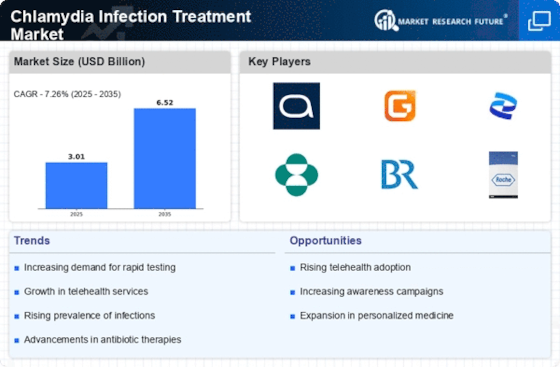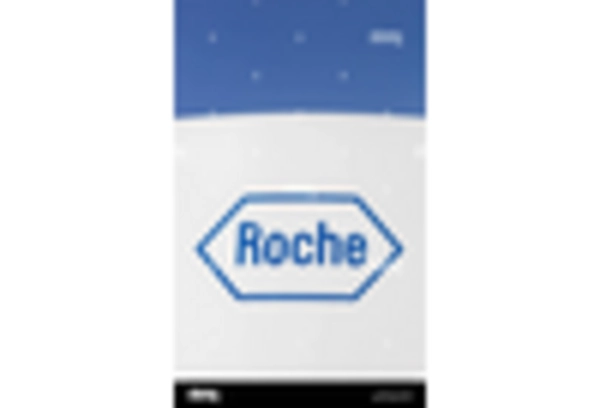Market Share
Chlamydia Infection Treatment Market Share Analysis
The Chlamydia disease treatment market is important in healthcare. Due to the prevalence of chlamydia, a sexually transmitted illness. This industry's firms use a variety of market share positioning methods to differentiate themselves from competitors and meet the growing need for effective medicines.
Businesses build their strategies by identifying and analyzing their target audience, which is largely sexually active people, healthcare professionals, and public health organizations. To attract new clients, utilize marketing strategies tailored to these groups.
Successful market players focus on the unique traits and benefits of their Chlamydia Infection treatments to differentiate their products. Changes in medication compositions, delivery systems, and treatment regimens help companies stand out and gain market share. Price is crucial to market placement. Companies use competitive pricing tactics to balance client affordability and profitability. Discounts, bulk purchasing incentives, and smart healthcare provider partnerships can give you an edge. Discounts help too. To expand their impact, market leaders investigate foreign prospects as well as domestic markets. Additionally, they target domestic markets. Establishing global distributor ties, conforming to several regulatory requirements, and addressing regional healthcare norms all contribute to a more complete market presence. The Chlamydia Infection Treatment industry prioritizes brand exposure. This is a key industrial factor. Businesses spend in focused online and offline marketing to familiarize clients with their offerings. Public awareness campaigns, including education, help position the business as a credible choice. Joint actions with research, healthcare, and government agencies can improve market positioning. Strategic collaborations make research and development, resource access, and product marketing easier. Always following strict laws and maintaining high-quality standards is crucial in healthcare. Businesses invest in R&D to satisfy changing regulations. To comply with regulations. This also reassures customers and healthcare experts about their goods' safety and efficacy. Companies may react when customers and doctors provide regular input. This allows businesses to compete. An unwavering dedication to product performance, safety, and user-friendliness may boost market image and consumer loyalty. Digitization has made a strong internet presence essential. Businesses sell their products using social networking, e-commerce, and other digital channels. A comprehensive digital strategy includes easy-to-use websites, online consultations, and instructive content. Corporations are working hard to provide personalized medical solutions to fulfill the growing demand. Customizing treatment plans based on individual needs, demographics, and risk factors can boost market position by meeting target audience expectations. This might boost market position. Businesses offer post-therapy support immediately. These services may include counseling, teaching, and follow-ups. This holistic approach helps patients heal and reinforces the brand's integrative and comprehensive therapy.









Leave a Comment